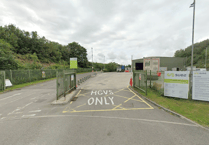A NORTH Cornwall chocolatier has spoken up about the difficulties climate change is causing within the industry.
Kernow Chocolate, based in Wadebridge, is spreading awareness of the dangers of climate change on one of the nation’s much-loved industries.
A new report by the international development charity Christian Aid shows rising temperatures and erratic rainfall has hammered cocoa harvests in Ghana and Côte d’Ivoire, where more than 50 per cent of global cocoa is grown. As a result, this has slashed the availability of cocoa on the global markets, seeing prices soar in the UK and around the world to record highs in recent years – and the size of our chocolate bars shrink.
The report, ‘Cocoa crisis: How chocolate is feeling the bite of climate change’, coincides with new data from research group Climate Central which shows that over the past decade climate change added at least three weeks above 32°C annually, during the main cacao crop season (October-March) in Côte d’Ivoire and Ghana. Such temperatures are above the optimal temperature range for cacao trees.
Some of the UK’s favourite chocolate companies are now feeling the pinch from the cocoa crisis, as well as global confectionary giant Nestle, who have spoken out on the threat posed by climate change.
According to the charity’s study, this year’s cocoa shortage could see a crash in production similar to last year which saw cocoa prices rise 400 per cent to $12,218 a tonne after droughts, floods and climate-related diseases hit cocoa farmers last year. On December 18, 2024, a new record was set at $12,605 per tonne and prices have remained stubbornly high ever since.
The cocoa shortage started in 2023, after unexpectedly heavy rainfall during Ghana’s dry season. Total precipitation in West Africa was more than double the 30-year average for the time of year and the wet conditions caused plants to rot with black pod disease. This was followed by severe drought in 2024. The UN said that Ghana’s 2024 drought affected more than 1-million people, and resulted in terrible crop losses and record-high food prices. According to a study by World Weather Attribution, climate change made the heatwave in West Africa ten times more likely.
Now, one of Cornwall’s chocolate manufactures has said how this has affected their production.
Andy Soden from Kernow Chocolate, said: “Global cocoa production has been impacted for the about last four years due to a rapidly changing climate, and also El Nino and La Nina effects. The layman’s version of this essentially is they are getting the wrong weather at the wrong point in the growing and harvest cycle, which is massively reducing output. Low supply and high global demand have inflated market prices globally from a relatively stable market price to upwards of £10,000 a tonne.
“For a small manufacturer, this has the potential to put us out of business long term as our wholesale price for 2025 is very close to passing our retail price of 2023. Such is the rapid inflation of the base price. Larger companies can manipulate recipes to remove cocoa products (substituting cocoa butter for dried cream etc) or alter pack sizes. As a small business, making everything by hand, this kind of workaround just isn’t an option, so we have no option but increase pricing and hope that the product remains saleable.
“It’s a nightmare, I don’t think any business involved in chocolate has avoided this impact, and it’s all down to climate change.”
Alexander Carnwath, head of public affairs at the Fairtrade Foundation, added: “Environmental sustainability across the cocoa supply chain cannot be achieved without social and economic sustainability. Where cocoa producers are bound by trading relationships that require them to sell below the cost of production, they may be forced to resort to unsustainable practices. The ability of producers to earn a living income, through higher prices for their produce, is a key enabler as well as a precondition for ensuring effective climate action. The payment of higher prices by businesses must be accompanied by greater action by governments, especially those in rich countries.
“At Fairtrade we believe that the UK’s economic growth is inseparable from trade that benefits farmers across the world. We hear every day from farmers who tell us that international trade is still not fair. In the Trade Strategy due to be published in Spring, the UK government has the power to drive change. It can do this by ensuring coherence between its trade, development, and climate policies.
“The UK government must carefully craft its approach to trade in a way that supports businesses and the livelihoods of the millions of small-holder farmers in low-income countries. This is what will deliver sustainability in our food supply chains.”




